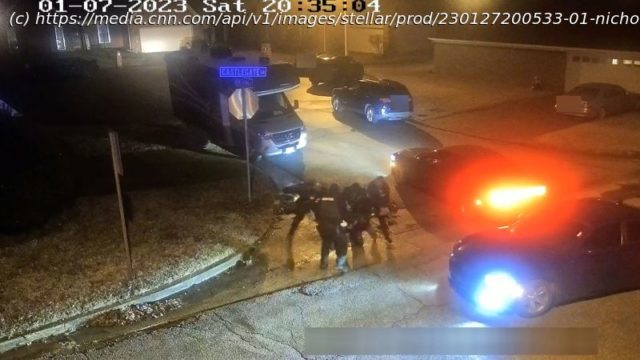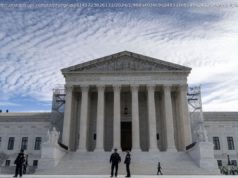Weeks after Tyre Nichols was brutalized by Memphis police officers, city law enforcement officials are being hailed for their unusually rapid investigation and transparency compared to similar cases in other US cities.
Weeks after Tyre Nichols was brutalized by Memphis police officers, city law enforcement officials are being hailed for their unusually rapid investigation and transparency compared to similar cases in other US cities.
Five former officers were indicted Thursday on charges of second-degree murder and kidnapping. One day later, officials released police body camera and street surveillance footage of the deadly encounter after a January 7 traffic stop.
“If we look at some past incidents in our country, there’s been some mistakes made,” said Ron Johnson, a former Missouri State Highway Patrol captain, referring to the handling of previous cases of police brutality. “I think a lot of things have been done right” in this case.
“A year ago, two years ago, we wouldn’t have seen some of the things we’re seeing here,” Johnson said of Memphis law enforcement’s handling of Nichols’ death.
Law enforcement and legal analysts point to Memphis’ actions as a new example of how to maintain trust in the community after fatal police encounters.
“We’re in a new era of accountability,” said CNN legal analyst Joey Jackson, noting the proliferation of police body cameras and cell phone and surveillance video that capture violence by officers. “The more we have these instances that are caught on camera, the more public is outraged, the more there is demand for accountability.”
Here is what Memphis law enforcement officials got right in the days since the beating that led to Nichols’ death, according to experts.
The incident that reignited long-simmering tensions over fatal police encounters with Black men started when Nichols, 29, was pulled over on the night of January 7 for alleged reckless driving, according to the Memphis Police Department.
Police initially issued a somewhat vague statement about a “confrontation” between officers and the driver – later identified as Nichols – who then fled on foot. Officers caught up to the man and “another confrontation” resulted in Nichols’ arrest, police said.
An ambulance was called to the scene after Nichols complained of shortness of breath, according to police. He was taken to a nearby hospital in critical condition. Three days later, the Tennessee Bureau of Investigation announced Nichols had died from injuries sustained in the “use-of-force incident” with officers, according to the statement.
Officials have not released Nichols’ autopsy report.
The preliminary results of an autopsy commissioned by attorneys for Nichols’ family said he suffered “extensive bleeding caused by a severe beating,” family attorney Benjamin Crump said this week.
The full independent autopsy report is not yet ready, Crump told CNN.
After the incident, the five officers were relieved of duty – a standard departmental procedure while their use of force was investigated, police said. The Tennessee Bureau of Investigation and the Shelby County District Attorney’s Office were enlisted to investigate.
On January 15, noting the serious nature of the officers’ conduct during the stop, Memphis Police Chief Cerelyn “CJ” Davis vowed “immediate and appropriate action.” The department was “serving notice to the officers involved,” she said.
Three days later, the US Justice Department said a civil rights investigation has been opened into the death of Nichols.
“We are now looking at cops through a different prism and when cops don’t act, when cops allow an event to happen over four, five, ten minutes, then maybe they should be held responsible to an even higher standard,” Mark O’Mara, a criminal defense attorney and former prosecutor, said Saturday. “So we are in a new era, I think, of looking at police behavior under a different eye towards possible prosecution.






